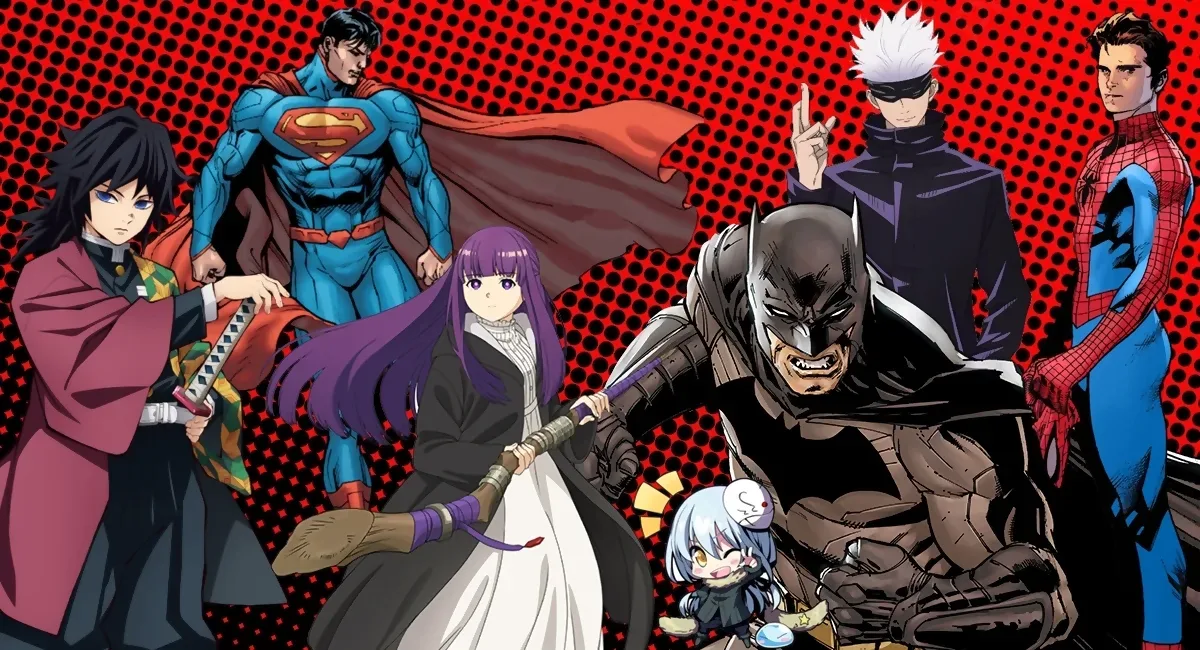The boldness of the manga industry stands out in relation to that of comics, since, when a hero succumbed or a plot reached its conclusion, it was truly the end.
Marvel and DC Comics are always in a cycle of character recycling - Man adventure, alternative universes, new magazine imprints, but never completely finishing a character's arc.
This approach isn't a problem. It's how iconic stories are born, and these characters become legends in pop culture. However, it also leaves the characters in a tedious cycle: how many times has Clark Kent learned to fly, and how many times has Peter Parker developed an artificial web? In addition to the endless suffering they go through to "develop the character," overcoming traumas and personal issues, with events increasingly more dramatic than those of the character's last appearance.
The biggest problem with this story recycling is the lack of/restriction of creativity for new projects. Few publishers are able to invest in new ideas, and even fewer are able to publish independently.
The comic book market is used to only Marvel and DC. There's not much incentive for new authors, as the public won't buy those stories.
But what about the manga?
The Japanese industry has never had this problem because manga is an extremely personal work, usually done by one or two people, of course, there are exceptions, like CLAMP .
When a comic is produced by a major publisher, it needs to be a hit, period. If the story doesn't fit the industry standard, it will be reworked. The author and illustrator work for the publisher; it's their job to create a product that resonates with the market. They can't reject the publisher's suggestions and say, "My story isn't like that!" or "But my style doesn't follow that style."
In this regard, does Japanese manga have more freedom, much more freedom? No, but at least it can choose its captor (publisher).
The manga artist pitches an idea to the publisher, and that idea will be developed with an editor, who will ensure the idea aligns with the publisher and is profitable. The manga is the intellectual property of the author and the publisher, which is why we sometimes see the author participate in the production of the manga-to-anime adaptation. As the creator, they have a say in what happens to their work.
Batman comic book writer and Bane co-creator Charles “Chuck” Dixon spoke about manga on his YouTube podcast Ask Chuck Dixon #65 , answering the question:
What's your theory/thoughts on why manga is wiping the floor with American comics?
"It's not too hard to figure out, actually. There's a lot of dedication, passion, and skill that goes into manga. And that's almost entirely missing from Marvel and DC."
Dixon also praises the manga's art. "It's not hard to see. The art is compelling. It's different, engaging, interesting, and varied. So there are many reasons to enjoy manga."
One of the most intriguing things about manga is the variety of themes its stories address, with diverse options for every niche. There's a manga series about reincarnation in another world, and sub-niches about reincarnation in another world and doing something very specific (no examples needed). In this regard, Chuck comments on the lack of variety in comics and how manga explores all kinds of stories, embracing every type of reader.
"In Japanese manga, there are stories about golf. There isn't one story about golf. There are several comics about golf."
He then talks about the stark contrast with the American market: “But here, what do we get? We have superheroes and poorly made superheroes. There really isn't anything else in the big companies. […] And they're all avatars of the writers' political agenda. And they're kind of tiresome. They're not particularly well-drawn. They're not particularly well-realized.”
Chuck explains that the American market should learn from manga: “And I don't mean drawing people with huge eyes and lots of fast lines. I mean making stories more varied. Making stories more complex. Put more effort into the art. Put more effort into the craft. Change the format, for God's sake. Stop making folio comics and see what manga does. Those big, fat phone books. Weekly comics. Things like that. Just change the formula. See what manga is doing. Why is manga successful? Try copying that.”
The decline of comics has several reasons, including the artificialization of stories, recycling of characters, lack of creativity and novelty, the format of short monthly magazines, etc. In addition to overexposure after the popularization of superhero films, which should hold back a good part of the industry.
What happens with smaller-scale manga adaptations of anime, but instead of replacing the manga, they attract audiences? Could a superhero film have the same effect? The question remains.
Finally, I would like to contextualize that I love comics, and this text is in no way a criticism of the media, but rather the American industry and the big publishers.
Follow AnimeNew on Instagram !


